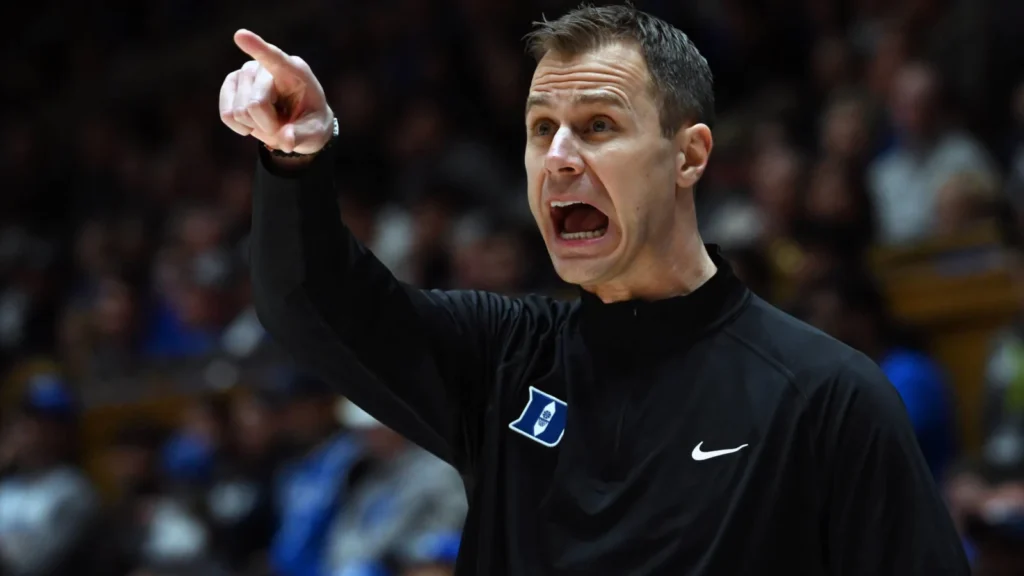DUKE COACH RECEIVES A FIRING NOTES SOME MINUTES AGO DUE TO…..

# The Firing of Duke Coach: An Examination of Leadership, Expectations, and Athletic Culture
In the high-pressure environment of college athletics, the position of head coach is one of significant responsibility and visibility. This role is especially pronounced at institutions with storied sports programs, such as Duke University. The recent firing of the Duke coach has stirred considerable discussion regarding the nature of leadership, the pressures of high expectations, and the broader implications for the athletic program and its community. This essay explores the multifaceted role of a college coach, the circumstances that can lead to a coach’s dismissal, and the broader consequences of such an action.
## The Multifaceted Role of a College Coach
A college coach’s responsibilities extend far beyond the game. At Duke University, a coach is not only tasked with leading the team to victory but also with fostering the holistic development of student-athletes. This includes ensuring academic success, promoting physical and mental well-being, and developing character and life skills that extend beyond the basketball court.
The coach serves as a strategist, mentor, recruiter, and public figure. They are responsible for devising game plans, conducting rigorous training sessions, and making real-time decisions during games. Off the court, the coach must recruit promising talent, maintain a positive public image, and act as a liaison between the team, university administration, alumni, and the media. Balancing these roles requires a unique blend of leadership, communication, and interpersonal skills.
## High Expectations and Pressure
Expectations for performance in collegiate sports, particularly at a prestigious institution like Duke, are exceedingly high. Success is primarily measured by wins and losses, championship titles, and the development of future professional athletes. Duke’s basketball program, in particular, is renowned for its competitive success and has cultivated a passionate fan base that demands excellence.
In addition to on-court success, coaches are often judged on their ability to recruit top-tier talent, maintain high graduation rates, and keep the program free from scandals. These factors contribute to the overall health and reputation of the program and the university at large. The financial implications are also significant, as successful athletic programs can drive revenue through ticket sales, merchandise, and media deals, while also enhancing the university’s brand and appeal to prospective students.
## Circumstances Leading to the Firing
The decision to fire a coach is typically the result of a confluence of factors. For the Duke coach, a string of disappointing seasons with subpar performance likely played a significant role. Consistent losses and failure to meet performance expectations can erode confidence among players, fans, and university officials.
Beyond performance metrics, other issues may contribute to a coach’s dismissal. These can include poor recruitment results, failure to develop players, internal conflicts within the team, or off-court controversies. The relationship between the coach and the athletic department leadership is also critical; misalignments in vision or philosophy can hasten a coach’s departure.
## Broader Implications
The firing of a coach has wide-reaching implications for the university, the team, and the individuals involved. For the coach, it is a professional setback that may impact future career opportunities and personal life. For the players, it brings uncertainty and adjustment challenges, as they adapt to new leadership and potentially different coaching styles.
For Duke University, the decision reflects a commitment to maintaining high standards and achieving competitive success. However, it also highlights the intense pressures within collegiate sports and raises questions about the balance between winning and the educational mission of the university. The transition period following a firing is critical for maintaining team morale and continuity, ensuring that the program remains competitive and cohesive.
## Conclusion
The firing of the Duke coach underscores the complexities and demands of collegiate sports leadership. It is a stark reminder of the high expectations placed on coaches and the multifaceted nature of their role. As Duke navigates this transition, the incident serves as an opportunity to reflect on the values and priorities that define its athletic program. Ultimately, the story of the Duke coach’s firing is a testament to the relentless pursuit of excellence that characterizes the world of college sports and the intricate balance between competition and holistic development.







